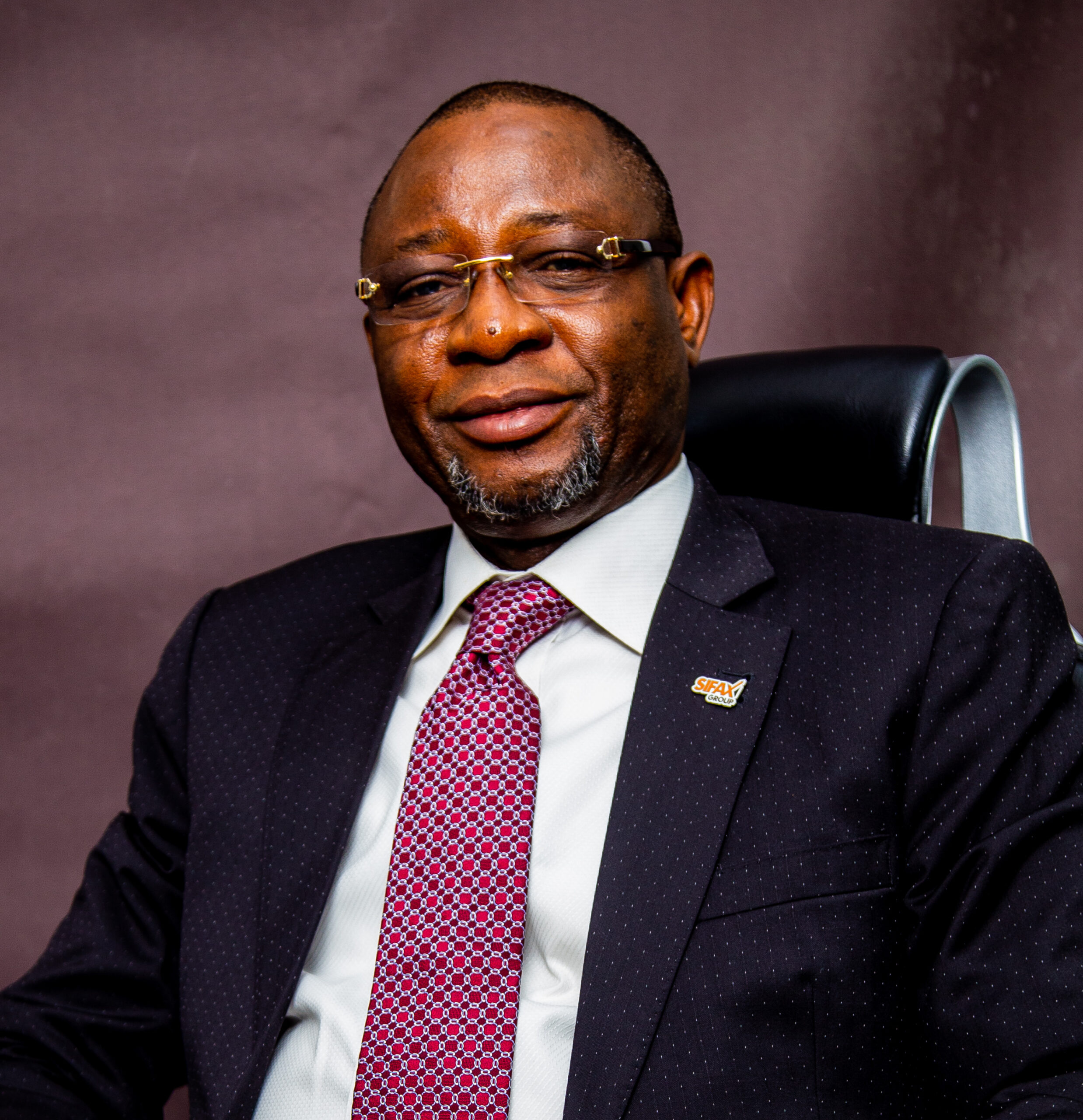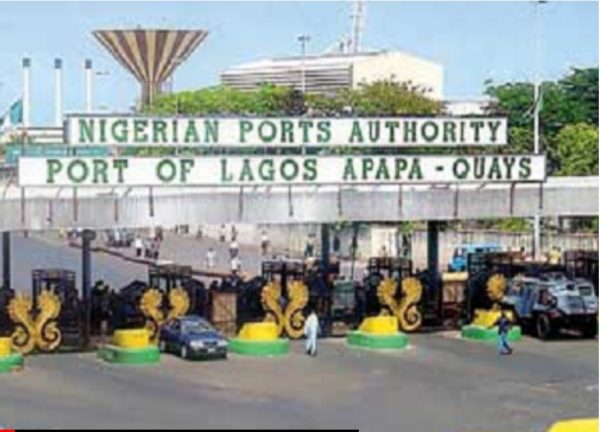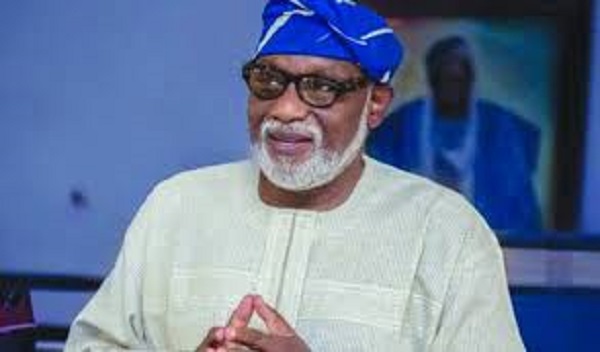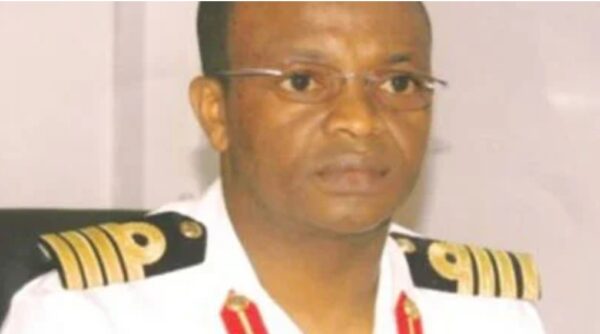How FG Fell For A Ponzi Customs Scheme
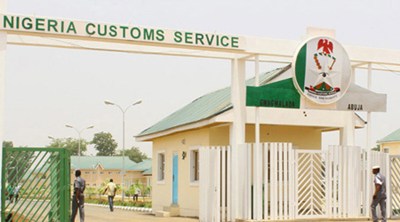 · New levies on import, export coming
· New levies on import, export coming
· Concessionaires to net $7.33m monthly benefits
By Kenneth Jukpor
Facts have emerged that the Federal Government may have been tricked into approving the concession of the Nigeria Customs Service (NCS) automation project with a wrong and unrealistic revenue generation projection from the consortium of concessionaires, who have promised to invest $3.1billion and generate $176billion within a 20-year contract.
This contract which is under a Public-Private Partnership (PPP) arrangement was last week approved by the Federal Executive Council (FEC).
While the concessionaires have projected $176 billion as earnings from the venture in 20 years, the emphasis would be to deepen imports which translate to import duties at the detriment of export and the nation’s economic development.
Since the Customs highest annual revenue earning was N1.3 trillion ($3.25 billion), a more realistic revenue for 20 years would be $65billion not the purported $176 billion which is over 150 percent higher than the ideal sum.
Experts, however, posited that the project sponsors introduced the $176 billion to trick the government into agreeing to the concession; lamenting that N1.3 trillion was even achieved under numerous gimmicks and multiple units and alerts by the Service to extort the trading public.
Findings from Customs headquarters reveal that their business plan is empirically deceitful as the exercise is not only import skewed but will relegate the nation’s export promotion agenda to the background.
While the Federal Government and the concessionaires have hidden details of the deal especially on how the revenue will be generated and how the concessionaires will make their return on investment, a source in customs divulged that there are plans to impose new levies on imports and exports, adding that NCS has spent over N300billion ($7.5bn) in ten years now for the various stages of Customs modernization from different versions of ASYCUDA project to Pre-Arrival Assessment Report (PAAR), among others with thousands of officers trained.
MMS Plus gathered that the concessionaires-consortium, messiers E-Customs HC Project Limited, will be paid N2.93bn($7.33m) monthly as 1 percent of the income value under the Comprehensive Import Supervision Scheme (CISS) while they earn $88m annually and $1.76bn in 20 years if CISS is the investment re-payment model.
But the curious and striking mismatch in the deal is that the investors cannot invest $3.1bn in 20 years and earn $1.76bn in the same period, stakeholders have noted; saying that the rational discrepancies are questionable.
MMS Plus findings also reveal that the sponsors of the concession exercise are ex-Customs Comptroller Generals and former Area Controllers with little concern about the sustainability of the Service as they intend to return ex-Area Controllers and other senior Customs officers as consultants at various ports.
Our correspondent gathered that most senior officers in the Service, from Deputy Controllers upward have been compromised to allow the concession take place without fuss as they were assured frequent promotions and opportunities at consultants upon retirement.
This explains why senior officers of the Service have been reluctant to comment on the development which threatens the relevance and existence of Customs.
MMS Plus gathered that a serving Area Controller in the Northern region has already been selected for promotion as acting Assistant Comptroller General (ACG) in charge of Customs Modernization.
The recent promotions by the Comptroller-General of Customs, Col. Hammed Ali (Rtd) as well as his candidacy as Customs helmsman is said to have been pre-arranged by those behind the Customs concession exercise.
A top Customs source noted that the initiative has been in the offing for years but stifled by several Comptroller-Generals since former CG Dikko Inde Abdullahi.
The consortium is made up of BIONICA Technologies W.A. Limited, Huawei, Smiths Detection, Nuctech of China, Larsen & Toubro Group, and Paramount Group.
The lead partner in the concession, BIONICA Technologies (W.A.) Ltd, formerly known as SANGO Engineering W.A. Ltd incorporated in 1986. The company is owned by the son of a former Comptroller General of Customs, Ahmed Bello and concession framework was championed by retired ACG Abbey from Benue State, who was in-charge, Information Communication Technology (ICT), NCS Headquarters, Abuja.
BIONICA specializes in integration of hi-tech innovations including non-intrusive inspection technology, ICT infrastructure platform systems, surveillance and intelligence monitoring systems.
The e-Customs Project is expected to improve Customs’ clearance efficiency, facilitate trade, enhance end-user satisfaction, foster mutually beneficial relationships between consumers and the NCS; but the stakeholders especially freight forwarders have no confidence in the concession arrangement.
Would the group of companies be transparent enough to explain how much export would be generated and the volume of import envisaged? Where is the equilibrium in the nation’s international trade? Is there a legal framework to validate such a concession agreement? What are the lessons from similar concessioned projects like seaport and power supply, among others? Would the challenges in those sectors reoccur with the concession of Customs?
The President of Africa Association of Professional Freight Forwarders and Logistics of Nigeria (APFFLON), Mr. Frank Ogunojemite stated that he was moved to tears when the news of the FEC $3.1 billion approval broke last week.
His words: “I’m not happy with this development and I’m sure several stakeholders have similar feelings. Recall that last year APFFLON had a press conference where we revealed the proposed privatization of Customs and criticized it. The government later said the initiative was suspended. It is unfortunate that it was revived without stakeholders’ consultation. The reality is that most privatized or concessioned projects in Nigeria haven’t yielded the desired results. From the power sector to port terminals, we have witnessed a myriad of challenges.”
Ogunojemite also expressed worry that the concession period would last for 20 years, describing it as too long for a trial venture.
“We don’t know those behind this concession and their reasons. Do they have genuine reasons to develop the sector or would the undue exploitation continue? As advocates of ease of doing business, APFFLON would ensure this doesn’t further exacerbate the situation at Nigerian ports. I actually shed tears when I saw it on the news.” He said.
On the proposed $176billion to be generated by the concessionaires, the APFFLON boss said, “I really don’t believe that it would be possible to realize almost three times what Customs generate annually. It could be another promise to justify the concession. Perhaps, we have to give them the benefit of doubt and see if they can achieve that. The references we have from other concessioned projects show that it leads to more hardship for operators.”
He, however, argued that Customs officers should have been selected and trained to handle the innovative approaches instead of the concession.
“If the idea is to promote agricultural export and processing, then we can celebrate it. However, the idea is to further deepen imports and the results would be bad for the country’s economy. When you look at the naira depreciating everyday and this import dependence strategy; it is a shame for Nigeria.”
Meanwhile, a veteran maritime lawyer and convener of the annual Oil Trading Logistics (OTL) Africa Downstream exhibition and conferences, Mr. Emeka Akabogu described the development as placing the cart before the horse as the arrangement lacked legal backing.
“Any investment in customs modernization without starting from the legal framework and policy quick-wins will be cosmetic and self-defeating. I advise we start from that point and from there define the technology requirements to facilitate compliance which will be the basis for a procurement such as has been done. We have put the cart before the horse,” Akabogu said.
In an email response sent to MMS Plus, Akabogu said; “When the Federal Executive Council of the country has given its seal to a project such as this, I would assume that it has been given a 360-degree consideration, particularly relating to viability and value for money. There is no doubt that the country needs end-to-end customs modernization, but it must be guided by the very reason for which it is needed, which is transparency and trade facilitation.”
According to him, transparency will determine if the scope of the project justifies the investment.
“I certainly feel that the stated cost is not just high, it is mind-boggling. Automation will certainly involve new technology and innovation, but it is not rocket science. The project being contemplated will probably incorporate complete automation of data submission and verification processes for cargo clearance in a formalities’ single window. For increased assurance, it may be carried on block-chain technology and even involve deployment of smart contracts. I absolutely subscribe to it as it will resolve the current issues which bedevil import clearance efficiency including extortion by customs and under-declaration by importers. But it will not cost USD3.1billion and does not need a twenty-year concession,” he posited.
Also speaking with MMS Plus on this development, former President of National Association of Government Approved Freight Forwarders (NAGAFF) Chief Eugene Nweke described the development as “unbelievable”.
According to him, the move to concession Customs spells the end of the automation and transition at the Service.
His words: “This development makes me recall statements of former Presidents of Nigeria. Goodluck Jonathan and Olusegun Obasanjo have at different instances, pointed out that the nation’s economic data and permutations don’t reflect the reality in the country. The proposed GDP growth, revenue earnings and other factors utilized in coming up with decisions like the concession of Customs don’t reflect the true position of Nigeria.”
He noted that the idea behind the concession should be to attract Foreign Direct Investments (FDIs) into the country; but lamented that the proposed Customs concession would see the sponsors depend on Nigerian banks or monies to be generated from the Nigerian system.
Nweke also posited that the statistics required for developing crucial fiscal policies are either flawed or unavailable.
“What data does the Central Bank of Nigeria (CBN) use for its statistics? What is the actual population of Nigeria? How many are employed and unemployed? How many are in schools receiving scholarships? How many are aged, no longer working and dependent on others? How many people are trading? Who are those working either in public or private organizations? What is the level of Foreign Direct Investments (FDIs) in the country?” Nweke queried.
“We know that the government is trying to explore strategies to grow the economy. Nigerians have survived COVID-19; the government shouldn’t kill those of us alive with poorly conceived fiscal policies,” he added.



